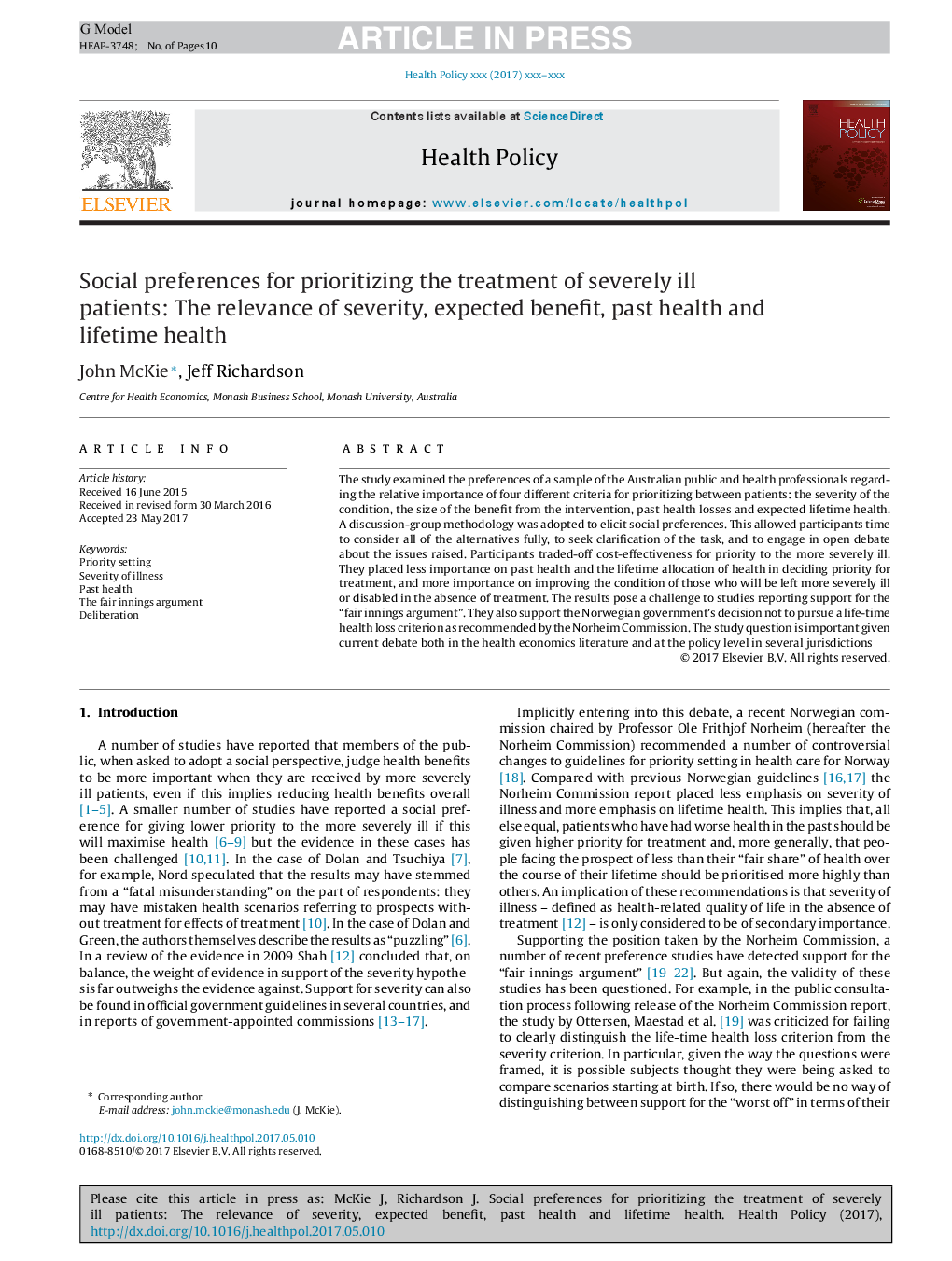ترجمه فارسی عنوان مقاله
ترجیحات اجتماعی برای اولویت بندی درمان بیماران شدیدا بیمار: ارتباط شدت، سود مورد انتظار، سلامتی گذشته و سلامت زندگی
عنوان انگلیسی
Social preferences for prioritizing the treatment of severely ill patients: The relevance of severity, expected benefit, past health and lifetime health
| کد مقاله | سال انتشار | تعداد صفحات مقاله انگلیسی |
|---|---|---|
| 140593 | 2017 | 10 صفحه PDF |
منبع

Publisher : Elsevier - Science Direct (الزویر - ساینس دایرکت)
Journal : Health Policy, Volume 121, Issue 8, August 2017, Pages 913-922
ترجمه کلمات کلیدی
تعیین اولویت، شدت بیماری، سلامت گذشته گفت: مذاکره،
کلمات کلیدی انگلیسی
Priority setting; Severity of illness; Past health; The fair innings argument; Deliberation;

